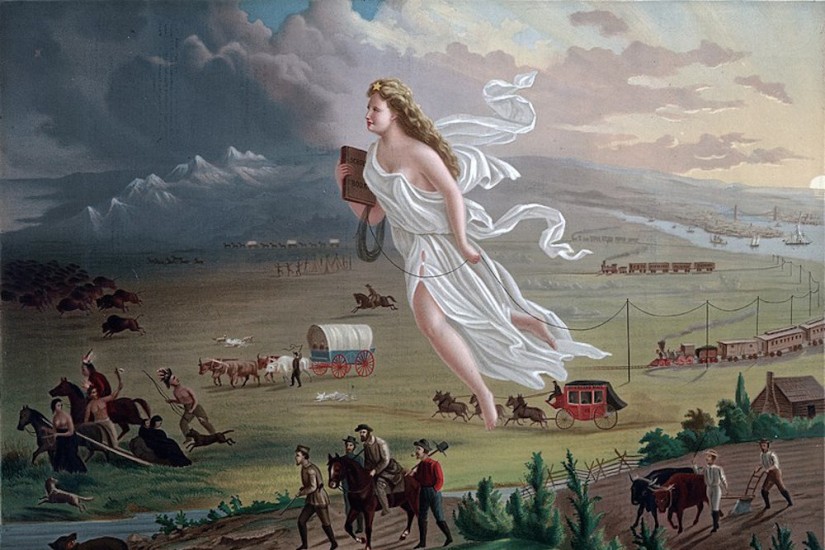Brands is a well-regarded biographer who tells his story through character sketches. He opens and closes his book with Teddy Roosevelt (the subject of Brands’s 1998 biography, T. R.: The Last Romantic), an archetype of the effete Easterner who reinvented himself under big Western skies. As one contemporary lamented after Roosevelt’s ascension to the nation’s highest office in 1901, “That damn cowboy is president of the United States.”
The rest of Brands’s narrative marches through a series of crisply written vignettes centered on various individuals, some of them well known (Lewis and Clark, Stephen Austin), others less so (Joseph Meek, an early fur trapper and settler to Oregon), most of them white and male (among the exceptions: the missionary Narcissa Whitman; the Nez Perce leader Chief Joseph; the Lakota holy man Black Elk). To the extent that Dreams of El Dorado advances a sustained argument, it is that the West’s promise of new beginnings and fresh starts often proved illusory: “More commonly […] the reality fell short — often far short — of the dreams.” In a nod to Turner’s nostalgia about the supposed close of the frontier in 1890, Brands situates the West’s significance in the past, with only a “residue” slipping through into our present day: “The gambling spirit of the Gold Rush found its echo in the venture capitalism of Silicon Valley.”
Although the book’s publication date is in October, Dreams of El Dorado has the feel of a book crafted for the Father’s Day market. Brands’s has a deft narrative touch and a talent for highlighting the human drama undergirding historical events. But Dreams of El Dorado is not challenging history. It is scholarship as entertainment, history as adventure story. The book’s purpose is not to cause the reader to rethink their conventional understanding of the American past, but rather to affirm what on some level they already know. Brands is Cody-like in his treatment of history as a vast theatrical pageant, and unfortunately Turner-esque in consigning the violence against indigenous people to the historical background.
If there is any larger insight to be gleaned from Dreams of El Dorado, it has to do with how difficult it remains for many historians to include a complete treatment of Native Americans in their narratives. Brands’s book appears on the heels of several other books by popular historians, both inside and outside the academy, that have struggled with making North America’s indigenous peoples meaningful actors in the past.




















